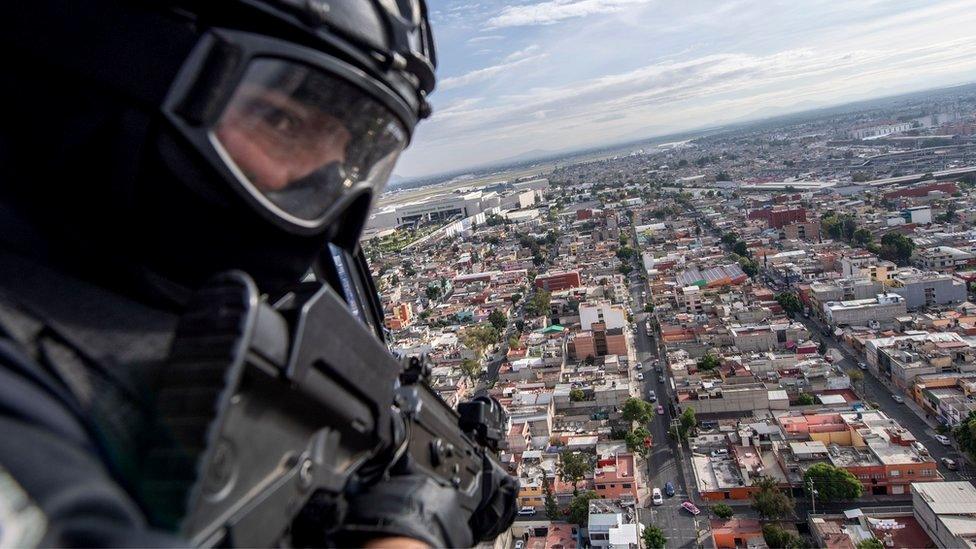Mexico missing Italians: Police accused of handing them to gang
- Published
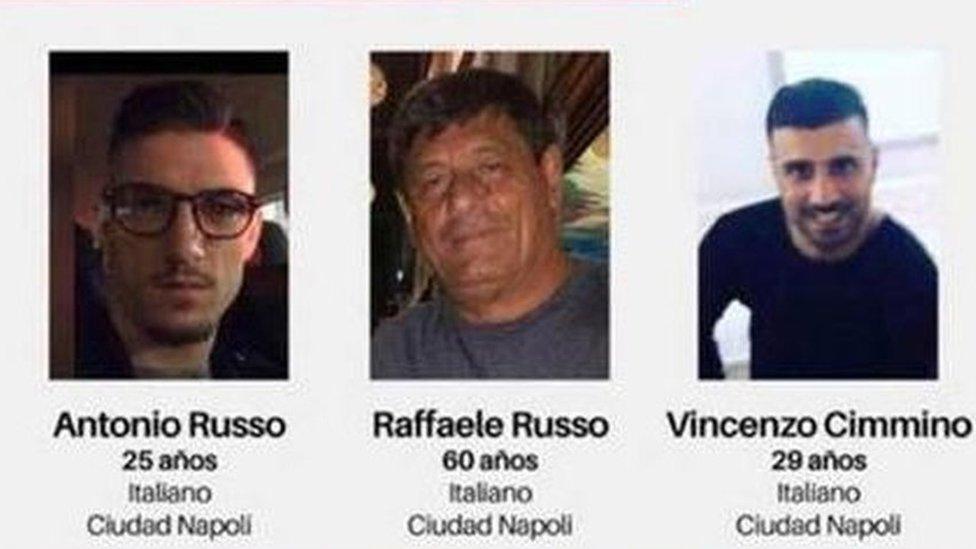
Antonio Russo, his father Raffaele and cousin Vincenzo disappeared on 31 January
Mexican authorities have launched criminal proceedings against four police officers over the disappearance of three Italian men.
The missing men - all from Naples - were last seen on 31 January in Tecalitlán, in the western state of Jalisco.
The state's governor said the officers had confessed to handing the Italians over to a local criminal gang.
The police had allegedly arrested them at a petrol station beforehand.
What is alleged to have happened?
Raffaele Russo, 60, his 25-year-old son Antonio, and his nephew, Vincenzo Cimmino, 29, had stopped at a petrol station in Tecalitlán, an agricultural town.
The last relatives back in Italy heard from them was a Whatsapp message from Mr Russo saying they had been approached by police officers who arrived on cycles and in a van.
The police told them to follow them, according to the message.
The son of one of the disappeared earlier told Italian radio that the men had been "sold to a gang for €43" ($53; £38), but regional officials said they could not confirm that information.
The area is controlled by the Jalisco New Generation cartel, one of Mexico's most powerful criminal gangs.
Four police, including a female officer, have been detained and charged. The Mexican authorities say three more police are being sought in connection with the disappearance.
Following the trio's disappearance, the town's entire police force was sent for retraining, although some local media speculated that they were sent away so that they could not be intimidated by local cartel members into changing their story.
What were the Italians doing in Mexico?
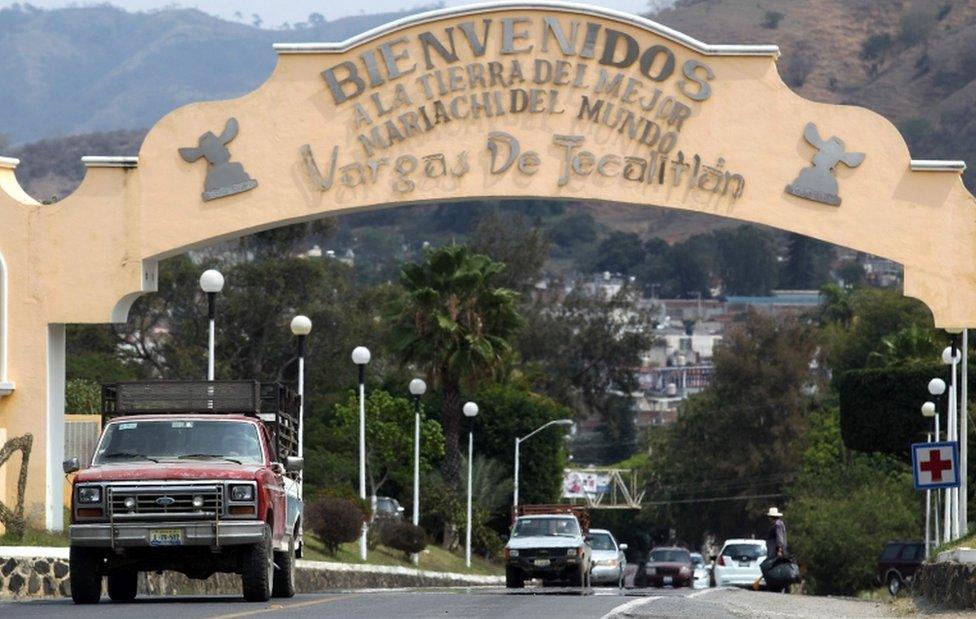
Tecalitlán lies in territory controlled by one of Mexico's most powerful criminal gangs
It is not absolutely clear, but reports say they were there to sell Chinese merchandise.
Jalisco State Prosecutor Raúl Sánchez said he had information showing the three were selling cheap generators and agricultural machinery which they passed off as high-quality branded goods.
Relatives in their home town denied the three were doing anything illegal in Mexico.

Who are the Jalisco New Generation cartel?
A government crackdown on drug cartels since 2006 led to fragmentation, internal conflicts and new groups forming
The cartel was founded when Milenio Cartel, originally a branch of Sinaloa syndicate, split
It was created in 2011 in western Jalisco state and is notorious for violent attacks on security forces, including the shooting down of a government military helicopter
It's led by Nemesio Oseguera Cervantes, alias El Mencho, 53. The group has fought for supremacy with Zetas Cartel in Veracruz state, leaving dozens dead
It presents itself to residents in its territory as a force to rid them of other crime gangs
Its interests include opium and marijuana growing, with assets estimated in the billions of dollars

Is this unprecedented?
Mexican media have drawn parallels between this case and that of 43 Mexican students who disappeared from the town of Iguala in 2014.
The state prosecutor in that case said that the students were handed by corrupt local police to a criminal gang, who killed them and burned their bodies.
Local police, who are poorly trained and poorly paid, are often threatened or bribed by criminal gangs to turn a blind eye or even do their bidding.
For that reason, federal authorities often send federal police forces and even soldiers to the most violent areas.

Is it safe to travel to Mexico?

Most visits to the country are trouble free, but violent crime and gang activity pose a risk in certain areas.
Last month, the US state department warned tourists to "completely avoid" five states because of rampant crime levels.
Colima, Guerrero, Michoacán, Sinaloa and Tamaulipas are classified as a level-four risk, the highest in the scale, and the same as countries such as Iraq and Syria.
The state department says tourists should avoid driving at night, be extra vigilant when using ATMs and avoid wearing expensive jewellery.
The UK Foreign Office says tourists should research their destination thoroughly before travelling because violence is concentrated in specific areas.
It says drug-related violence is a problem in Jalisco, where the three missing men were last seen.
The Foreign Office also says kidnapping is a risk, and there have been allegations of police involvement.
It advises tourists to be discreet about discussing financial affairs in public and to inform relatives and friends of your travel plans.
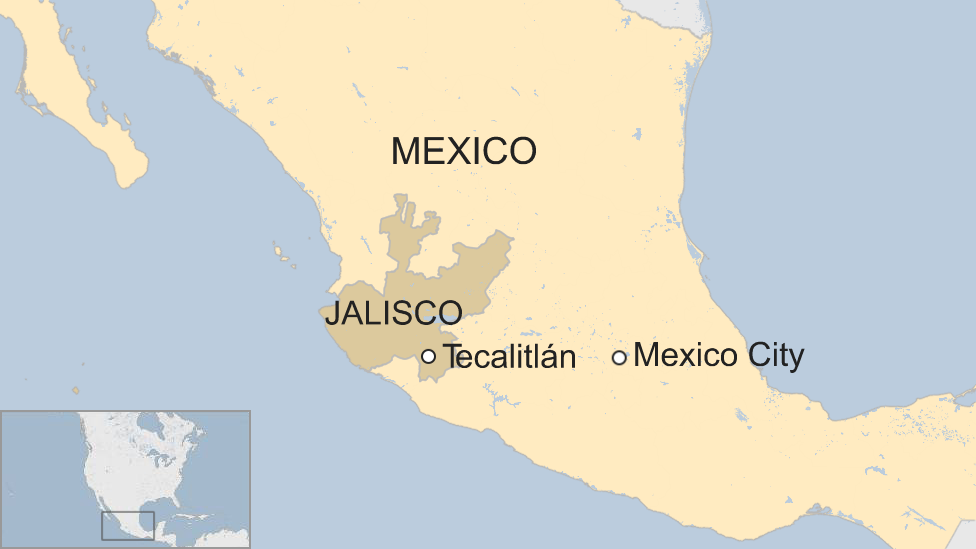
- Published27 February 2018
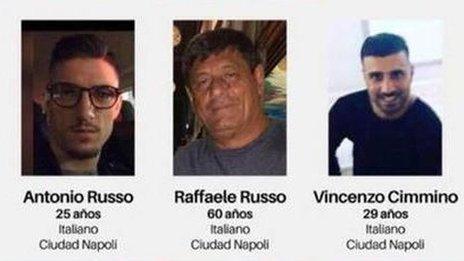
- Published20 February 2018
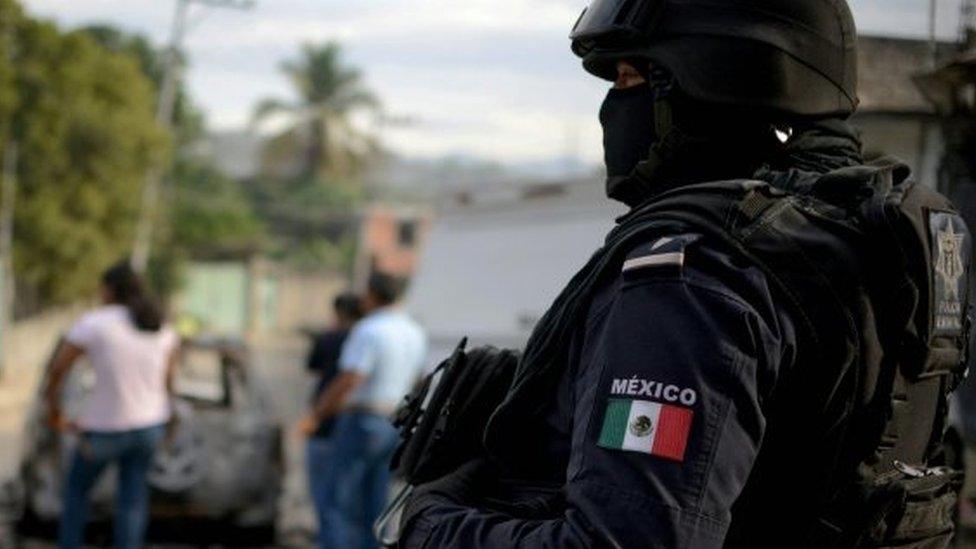
- Published24 October 2019
